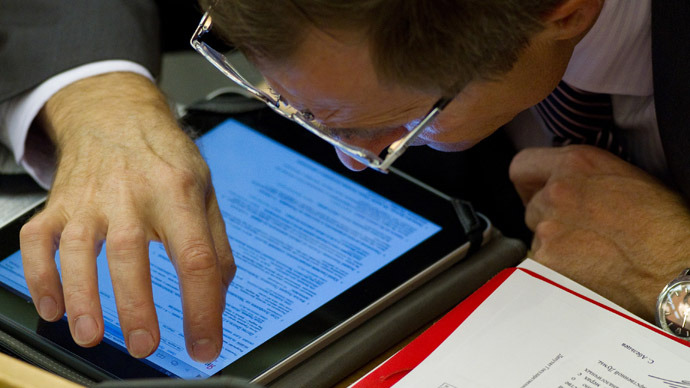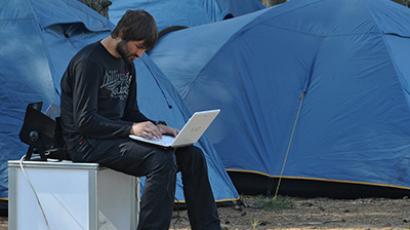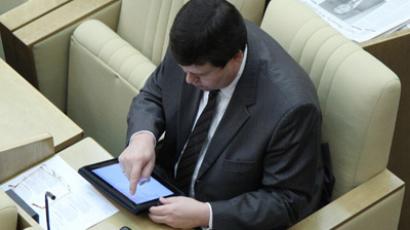Putin, govt at odds over officials’ web presence – report

The Russian presidential administration has warned top officials against excessive sincerity in blogs and social networks, while the government consistently encourages its members to embrace the newest internet fads.
An unnamed source in the presidential administration told the Izvestia daily that after several scandals the agency unofficially asked the officials from the executive branch of power to keep their blogging activities to a minimum. This does not mean that the Kremlin is against the very idea of blogs and social networks, but it is suggested that PR professionals take care of these issues, the source added.
These instructions especially concerned federal ministers, especially representatives of the ‘power bloc’, but not regional governors or members of the upper and lower houses of parliament, who must “themselves answer for their words,” the source said.
This is not the first time the Kremlin has drawn attention to social networks and their possible dangers.
In November 2012 the presidential administration told the regional government to be careful and direct while posting Twitter messages and threatened otherwise to outlaw official tweets altogether.
Back then, Vladimir Putin’s press secretary Dmitry Peskov said that the power bodies needed an official set of regulations concerning their internet presence. However, now Peskov told Izvestia that no moves had been taken in this direction as currently there were more important issues to deal with.
Peskov also commented on the Izvestia article on Thursday, saying that the official recommendation to ministers to quit blogging was technically impossible, but adding that the officials should always be mindful of their status.
At the same time, sources within the Russian government said they have not received any messages from the Kremlin concerning the ministers’ internet presence.
“Those of the ministers who have personal accounts continue to maintain them themselves,” said Natalya Timakova, the press secretary of the Russian Prime Minister Dmitry Medvedev.
Timakova added that the government not only did not object to such practices, but fully supported them and even held several seminars on the art of blogging for representatives of various state agencies.
That reaction was hardly surprising, as it was Dmitry Medvedev who first introduced the blogging trend during his presidential term. Medvedev has opened accounts on several major platforms and held offline meetings with leading bloggers in a bid to promote the new forms of contact with the mass media and the electorate.
However, it was Medvedev’s press secretary who recently told the press that the prime minister sometimes became offended and upset by the way his initiatives were perceived by the internet public.
Timakova complained that bloggers used inappropriate ways of addressing the PM and scolded them over their bad manners.
The internet activities of Russian officials have previously caused scandals.
For example in 2010, governor of the Tver Region Dmitry Zelenin posted a photo of a plate of salad with an earthworm in it, claiming the picture had been taken at a Kremlin reception. The story for the first time raised the issue of limits between official and personal identities in blogs.
One presidential aide suggested the governor be fired “for imbecility,” but Zelenin voluntarily resigned only one year later.
Another furor occurred when Deputy PM Dmitry Rogozin used obscene language in a tweet dedicated to the visit of US pop star Madonna (the official disapproved of Madonna’s support of Russian punk group Pussy Riot).
In the latest development the whole media community was at loggerheads with ruling party MP Andrey Isayev, who was so harsh in his appraisal of a daily column about three female parliamentarians, contending that some journalists considered them threats.














